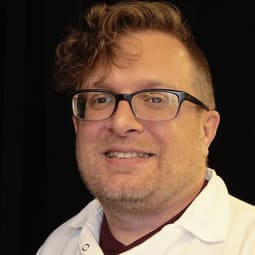
Matthew Lockett
Associate Professor, Department of Chemistry and Lineberger Comprehensive Cancer Center, University of North Carolina at Chapel Hill, USA
False

Associate Professor, Department of Chemistry and Lineberger Comprehensive Cancer Center, University of North Carolina at Chapel Hill, USA
Qualities of a successful mentor or educator? Empathy. Innovation is an energy-intensive process that requires focus and time and everyone requires different approaches to sustain motivation and creativity. Life can and does get messy – requiring us to redirect our efforts to maintain our health and well-being. Supportive environments promote innovation while minimizing the perceived weakness of asking for help.
Attracting talent… We need to foster inclusive research environments that encourage scientists to ask questions, brainstorm ideas, and share successes and failures. Self-doubt and imposter syndrome are prevalent in research, especially for individuals who cannot see peers similar to themselves running the classroom or in the lab. We must provide guidance and support to current and future colleagues, making an effort to celebrate contributions and achievements at every stage of the research process.
Biggest challenge facing the field? Many chemistry departments have lost sight of the importance of analytical science, the need for instrumentation and method innovation, and creative skill sets. Our job is to educate our colleagues and students on the importance of our field and how measurements continue to drive all aspects of scientific research.
Most exciting development or trend? I’m continuously astonished by the information obtained through single-entity detection and characterization. The molecular insight we gain from this process gives us the ability to design and control complex systems rationally.
We’ve also gained the ability to visualize individual metal-containing catalysts on a surface with electron microscopy in surface analysis – highlighting the disorder of chemically modified electrodes. These measurements reveal the schematics of well-ordered monolayers, which couldn’t be further from the experimental truth.
Receive the latest pathologist news, personalities, education, and career development – weekly to your inbox.

False
False
False